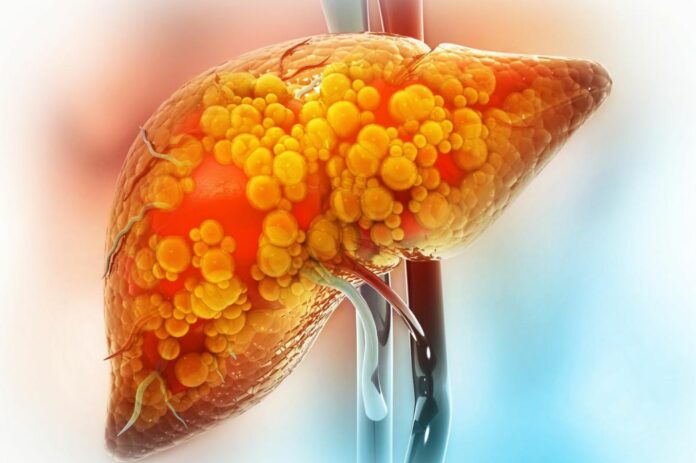Nagoya University’s Breakthrough: Supramolecule Targets Cholesterol to Halt Advanced Fatty Liver Disease, also known as NASH, Progression.
Researchers from Nagoya University’s Graduate School of Medicine and its Research Institute of Environmental Medicine have unveiled that cholesterol build-up in macrophages can intensify liver fibrosis, which plays a significant role in non-alcoholic steatohepatitis (NASH) progression.
Through a specially designed supramolecule, the team effectively eliminated cholesterol in a laboratory mouse, halting the disease’s advancement.
Given that similar cholesterol structures are identified in humans, it hints at a prospective solution for NASH.
Their groundbreaking discoveries are documented in the Journal of Experimental Medicine.
With the growing prevalence of obesity, there’s been a surge in fatty liver conditions. If unchecked, fatty liver can escalate to NASH, distinguished by inflammation, fibrosis, and the untimely demise of vital liver cells called hepatocytes. The role of cholesterol in exacerbating NASH is recognized, but the exact process remains unknown.

These macrophages, our body’s defense cells, surround deceased hepatocytes, drawn by the inflammation signals from the injured liver cells. These hepatocytes then discharge cytokines, intensifying the inflammation and resulting in further tissue harm and fibrosis.
Determined to unravel this puzzle, the research spearheaded by Dr. Takayoshi Suganami and Dr. Michiko Itoh from Nagoya University, employed diverse methods to detect cholesterol structures in the lipid content of dead hepatocytes and in the macrophages that consume these cells.
To ascertain cholesterol’s role in NASH, the team explored the effects of its removal. They crafted a special supramolecule, merging the oligosaccharide β-cyclodextrin, known to capture free cholesterol, with a specific polymer, resulting in β-cyclodextrin polyrotaxane (βCD-PRX). Upon introducing this supramolecule to mice, it predominantly settled in the liver, facilitating cholesterol removal and effectively arresting NASH’s advancement.
Commenting on the findings, Dr. Suganami noted, “Cholesterol crystals are also observed in human NASH patients, which suggests that βCD-PRX could be a potential therapeutic strategy for human NASH.
“Recent advances in analytical techniques have led us to understand the characteristics of macrophages, which play crucial roles in the development of NASH. This study provides evidence that cholesterol overload triggers macrophage changes and promotes the development of NASH, which could be a novel therapeutic target”
Source: 10.1084/jem.20220681
Image Credit: Shutterstock
